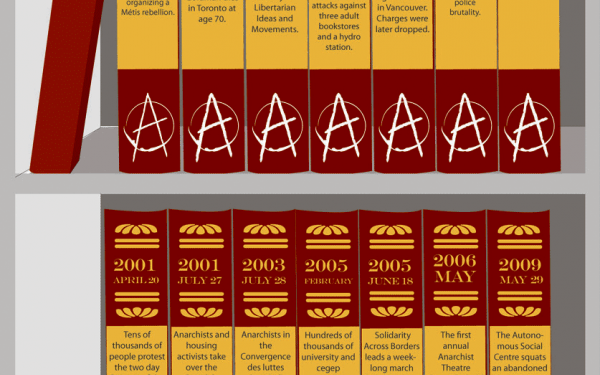Textbooks’ Price Might Drop
The price of textbooks could drop by 10 to 15 per cent overnight.
This isn’t a scam, or a Black Friday special. A national student group is calling on the government to stop allowing distributors to add taxes to the textbooks they import.
At present, the Canadian Copyright Act allows non-Canadian book publishers to select an exclusive distributor to sell their books in Canada. The chosen distributor is then authorized to sell the book for its price in its native country in addition to the exchange rate, plus a 10 to 15 per cent tax.
If the select distributor does not charge anything higher than this amount, Canadian booksellers choosing to import books from an alternate source are considered to have violated the Copyright Act.
Campus bookstores are no exception to these regulations.
The Canadian Alliance of Student Associations and Campus Stores Canada are pushing for the government to either remove this 10 to 15 per cent tariff altogether, or to lower it to zero per cent. Doing so would significantly decrease the cost of textbooks.
“Students would see results as of next semester,” said Wayne Amundson, executive director of Campus Stores Canada.
“The results would be immediate, literally.”
He said that with the U.S dollar and Canadian dollar so close, the inequity between prices is more visible than ever.
Concordia currently has several options available to students to help lower the cost of textbooks, such as the co-op bookstore, book rentals and a book exchange.
While helpful, the limited selection of books offered and awareness that these options exist make textbook prices an ongoing issue.
First-year exercise science student Vicky Barnes spent over $400 on textbooks for her four classes this semester.
“They are just way too expensive,” she said. “And when you get them second hand—they are only like $30 cheaper.”
Amundson claims modification or removal of this tariff would benefit both students and stores and cause no deficit to the government.
The distributors themselves would incur the only loss, as they are the beneficiaries of the money collected by the tax.
Amundson used the example of New Zealand to demonstrate the potential positive impact of removing the tariff. He explained the country was in a similar position to Canada and removed the tax—ever since, their domestic sales have increased.
This article originally appeared in Volume 31, Issue 16, published November 30, 2010.





__600_375_90_s_c1.jpg)